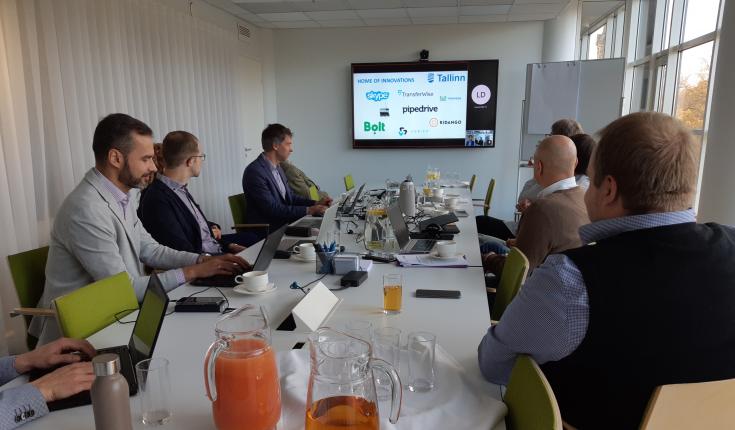Cooperation with Enterprises and Universities for New Innovative Smart City Services

On the 13-14th of October, the Policy Learning Platform successfully held a peer review for the benefit of the City of Tallinn IT department.
Current state of affairs
The Tallinn city government is designing a new policy on its digital development for 2023-2030. The development document "Digital Tallinn development directions 2030" aims to establish a plan for developing digital technologies in the city.
The city was looking for advice on elements of its digital development, namely four topics were addressed during the peer review:
- Cooperation with universities
- Cooperation with private sector
- Citizen engagement
- Digital technology as an enabler of achieving Green Transition goals
Peers from across Europe
Under moderation of Mart Veliste and René Tönnisson, five excellent peers from across Europe were invited, and provided their insights:
- Bernhard Gerhardter, Office of the Lower Austrian Provincial Government, Austria
- Harri Kuusela, Regional Council of Päijät-Häme, Finland
- Peter Grant, WSX Enterprise, United Kingdom
- Mariana Nagy, TEHIMPULS Association, Romania
- Clauz Zeppelzauer, Ecoplus The Business Agency of Lower Austria
Recommendations
Setting up a multi-year collaboration contract between the public authority and a university can lead to a fruitful consulting framework. The focus should be on seeing how parties could be useful to each other, and keep both sides informed about current development and plans. Such a contract also enables one to agree on a fixed contact point from both sides – making it easier to know which department's door one should go knocking on.
involve businesses in workshops and training for the city staff. The peer's also highlighted that the academic partners and enterprises should not be looked at separately. Rather triple-helix collaboration avenues should be sought, and the public authority can sometimes take the role of a fixer or broker between the other two groups.
The peers emphasized the importance of co-creation practices for the target groups' more significant sense of ownership of the city's development goals. The peers also supported going hyper-local when collecting the citizens' input. The city could do occasional awareness campaigns where city service representatives are brought to the streets to reach residents that do not feel comfortable in cyberspace.
The green and digital principles can converge in multiple ways. The City of Tallinn already mapped two such ideas.
- Digital data and sensors can be used for environmentally better decisions.
- ICT equipment can be reused and recycled in an environmentally conscious way.
However, a third idea that was more clearly formulated during the peer review was the potential of ICT tools to nudge citizens' behaviour towards greener practices.
The host’s policy challenges and all the peer suggestions can be found in the follow-up report, which will be published soon.
Apply for a peer review!
Find solutions to your regional policy challenges with our experts and selected peers during a two-day peer review.

